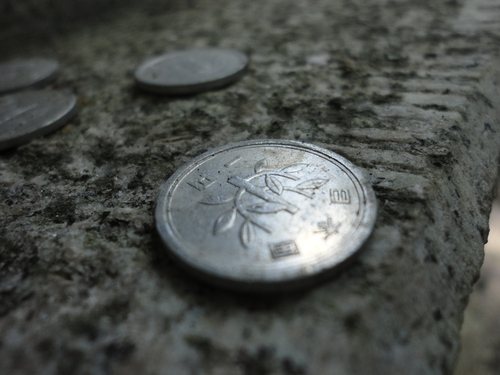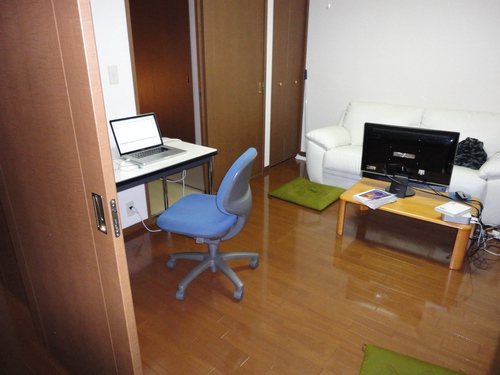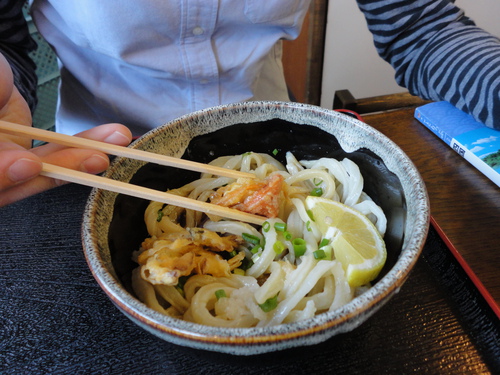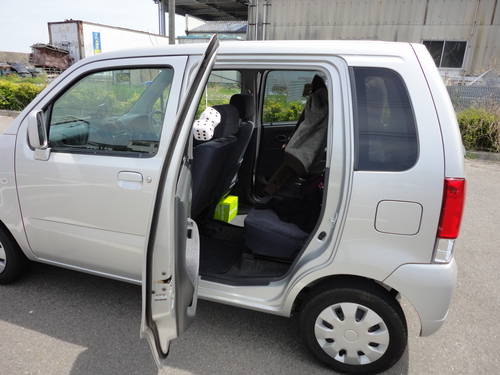What it costs to live in Japan
Two years ago I moved to Japan, working from home and hacking full time on what I would have used to call side projects in Finland (such as Facebook/iOS apps and recently a subscription site called Candy Japan). Many people have been curious about what it is like to live here, some having the dream of living in Japan themselves one day. A common question I get is "what does it cost?". This is an updated post based on criticisms and comments from a year ago, particularly adjusting such that this would reflect what a person living alone here might pay.
Current estimate for all personal expenses is about 1800 eur or $2300 / month. I live on a spouse visa in a small city called Tokushima, so things tend to be a lot cheaper here compared to Tokyo, where some parking spaces cost close to our current rent. Before moving here I was hoping to save a bit compared to Finland, but as yen got more expensive the cost ended up being similar. The change in exchange rate has really been crazy, one euro being 100 yen instead of 160 yen only a few years ago.
Our place
The whole rent is 714 eur ($480) / month. The rent we are paying here gets us a 70 square meter (750 square feet) place with shiny floors and a tatami mat room plus a shower that talks (it announces with a voice and melody when it is done filling the small furo-bath). For the properties on offer here, this was on the nicer side and is quite spacious for us. An apartment usually does not come with appliances initially. Initially it was a surprise to me to see people carrying away their fridges only to have the next tenant can carry in theirs, but of course where the line goes between what is part of the apartment is somewhat arbitrary.
Back as an exchange student living 30 minutes away from central Tokyo the rent was about the same, but for a cockroach-infested place with half as much space. We also had a singing neighbor and air conditioning that didn't really work.
Other housing related expenses are gas for cooking, electricity mostly for running air conditioning, water and home insurance. These together are about 73 euro ($93). We did have to pay several months of extra "key money" to even get this apartment, which is thank-you money you traditionally must give to the landlord except in rare cases such as housing specifically aimed at foreigners. I recall we paid something in the order of 2000 eur initially to move in.
Food
The supermarket bill tends to come to about 1000 yen per day, so that would be about 265 euro ($350) per month. Depending on whether you prefer rice or imported rye bread (yum) for your breakfast this can vary. Müesli / cereal also costs a lot more here.
For eating out I spend about 150 eur ($191). Lunch food like ramen noodles or curry tend to cost around 6 eur ($8) a meal. Most splurgy meal I have ever had here was 40 eur ($51). It was a multi-course dinner in the most central hotel on the top floor. Cheapest thing is Udon noodles, 3.5 eur ($4.5) for a delicious (but not very filling) lunch, pictured below.
Communications
For our Internet connection we have fiber to the home, with 2MB/sec downstream (about 10 minutes to download 1GB). The monthly cost 46 eur ($59).
To open a 48 month binding contract at 42 eur / month ($54) for an iPhone5 recently cost 100 euro to start, but my own phone is an older model with a cheaper base fee. Be careful though with the expensive voice minutes if you decide to go with these seemingly cheaper plans. I thought I was being clever by using a local to international transfer service (Rebtel) before realizing that just the local part was costing more than the international part, and have since switched to only using Skype for longer calls. Another mobile option for foreigners is a prepaid b-mobile data plan.
Health
Travel
For the longest time we tried to use only public transport, but many of the interesting places just cannot be reached without a car here. Eventually we relented and shelled some 6000 euro ($7655) on a "kei"-type small car. If a car meets the kei definition, you get certain tax breaks. Basically the engine has to be 660cc and dimensions need to be under 1.48 x 3.4 meters (4.9 x 11.2 ft).
Fuel costs 1.36 eur / liter which comes to $6.56 / gallon. Since I work from home, the only transport I end up needing is for weekend trips. This saves a huge amount. If you take longer trips road tolls can be shockingly expensive, one time we took a 2 hour trip to Kobe and ended up paying some 50 euro ($63.80) worth of tolls on it.
Many streets are extremely narrow here and so far we have not regretted having a small car of this type.




